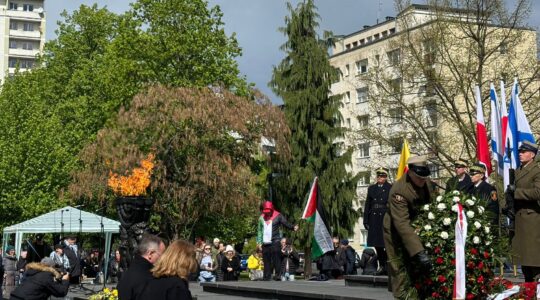(JTA) — A Romanian cellular communications company has begun to erect a transmission tower inside a Jewish cemetery with permission from the local municipality.
The tower’s construction in the western town of Petrosani began earlier this month, when a contractor dug a massive hole inside the local Jewish cemetery, according to a report Wednesday by the Romanian daily Servus.
“The land is leased from Hebrew Association in Romania and that’s all there is to it,” city spokesperson Marian Popescu was quoted as saying. “The mobile phone company required a building permit, which was issued legally.”
He was responding to complaints by people whose relatives are buried at the cemetery, who said the construction was desecration.
“Everything that is happening is illegal,” Octavian Popescu told Servus, adding that his wife’s family is buried at the cemetery. “I do not know who allowed these abuses. If you break the law, we follow the legal recourse to stop this regrettable and offensive development,” he said. He added that his family was not consulted before construction began.
Representatives of the Jewish community of Romania also were not consulted, according to Servus. The report did not name the cellular company constructing the tower.
Pictures of the earthworks show a large pit within one foot or so of the nearest tombstone in the cemetery, which has approximately 300 graves.
Petrosani and the neighboring villages had a Jewish population of 3,000 in 1940, according to Ana Maria Biro, who studied the community’s history. Most of them died in the Holocaust or left after. Only 25 people identified themselves as Jewish in a 2002 census conducted in the area.
Last year, the Council of Europe adopted a nonbinding resolution placing responsibility for the care of Jewish cemeteries on national governments. The resolution was based on a report on Jewish cemeteries that noted instances in which cemeteries in Eastern Europe have been turned into “residential areas, public gardens, leisure parks, army grounds and storage sites; some have been turned into lakes.”





